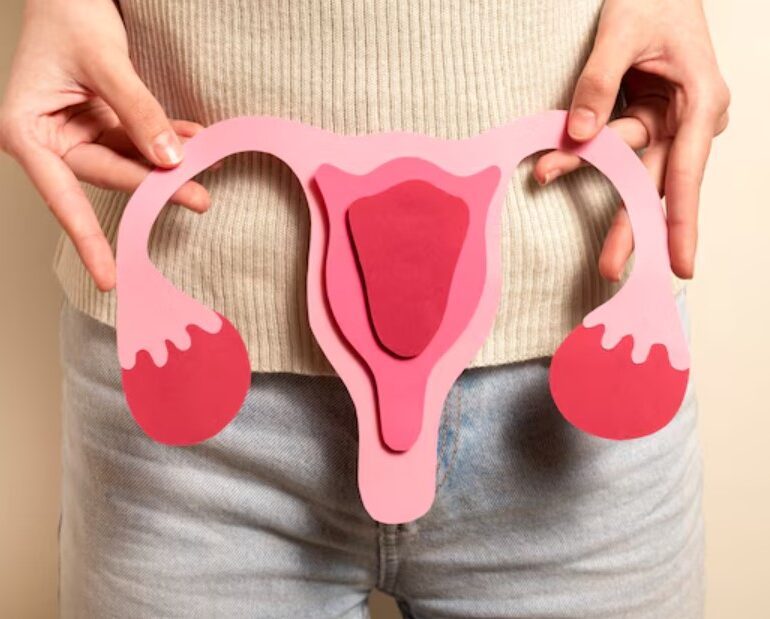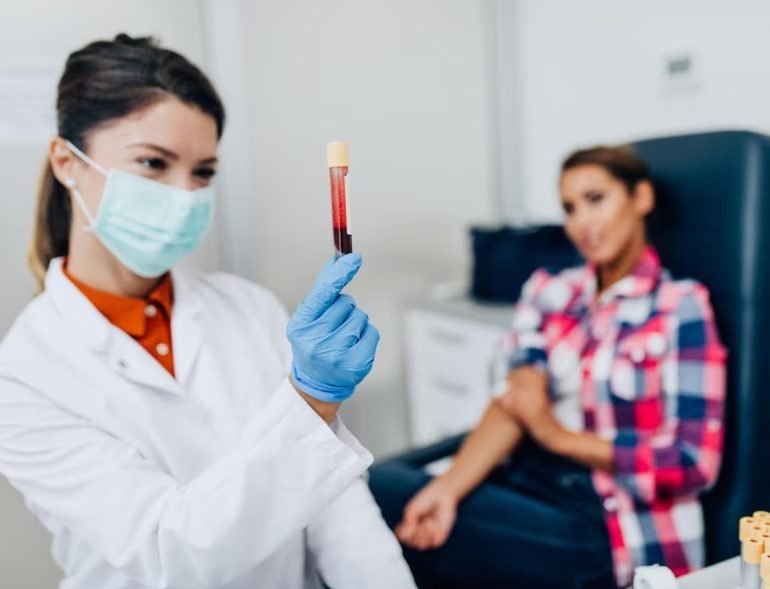A woman’s menstrual cycle is one of the most important indicators of her reproductive health. While slight variations in cycle length are normal, frequent changes, missed periods, extremely light or heavy flow, or unpredictable patterns often indicate irregular periods.
Irregular menstruation is more common than most women realize—and understanding its causes and solutions can help restore hormonal balance and overall well-being.
What Are Irregular Periods?
A normal menstrual cycle typically ranges between 21 to 35 days. If your cycle consistently falls outside this range, varies widely each month, or includes unusual symptoms like spotting or severe pain, it is considered irregular.
Common signs include:
-
Periods coming earlier or later than usual
-
Missed periods
-
Extremely heavy or prolonged bleeding
-
Very light bleeding
-
Spotting between cycles
-
Severe cramps or discomfort
If these patterns continue for more than 2–3 months, it’s important to seek guidance from an expert gynecologist.
Common Causes of Irregular Periods
Irregular cycles may occur due to multiple physical, hormonal, or lifestyle-related factors. Here are the most common causes:
1. Hormonal Imbalances
Disturbances in estrogen and progesterone can affect ovulation. Conditions like:
-
PCOS (Polycystic Ovary Syndrome)
-
Thyroid disorders (hypothyroidism or hyperthyroidism)
-
Hyperprolactinemia
are leading contributors.
2. Stress and Emotional Factors
High stress impacts the hypothalamus—the brain region that regulates hormones. Work pressure, emotional stress, or lack of sleep can cause delayed or missed periods.
3. Excessive Weight Gain or Weight Loss
Sudden or extreme shifts in weight disrupt hormonal balance.
Eating disorders, crash dieting, or obesity can all lead to irregular menstruation.
4. Intense Physical Activity
Athletes or women who exercise excessively may stop ovulating due to reduced body fat and altered hormonal levels.
5. Contraceptives
Birth control pills, IUDs, and hormonal injections may temporarily alter menstrual patterns.
6. Perimenopause
Women in their mid-40s may experience irregular periods as their body transitions toward menopause.
7. Chronic Medical Conditions
Illnesses like:
-
Diabetes
-
Celiac disease
-
Liver or kidney disorders
may also cause cycle disruptions.
8. Pregnancy and Breastfeeding
Missed periods is often the earliest sign of pregnancy. Breastfeeding mothers also commonly experience irregular menstruation due to high prolactin levels.
Diagnosis: How Gynecologists Evaluate Irregular Periods
Early diagnosis is key to preventing complications related to fertility, hormonal imbalance, or underlying medical disorders.
1. Medical History
A thorough evaluation includes:
-
Duration of irregular cycles
-
Stress levels
-
Weight changes
-
Family history
-
Lifestyle habits
2. Physical and Pelvic Examination
This helps identify infections, cysts, or anatomical abnormalities.
3. Blood Tests
Hormonal blood investigations commonly include:
-
Thyroid profile
-
Prolactin levels
-
LH/FSH
-
Estrogen & progesterone
-
Blood sugar levels (fasting & insulin for PCOS)
4. Ultrasound Scan
A pelvic ultrasound is essential to check for:
-
Ovarian cysts
-
PCOS
-
Fibroids
-
Endometrial thickness
5. Additional Tests (If Required)
-
Pap smear
-
Endometrial biopsy
-
MRI (rare cases)
For accurate diagnosis and comprehensive evaluation, many women in Faridabad trust Dr. Shweta Mendiratta, known for her precision, patient-centric approach, and expertise in women’s reproductive health.
Treatment Options for Irregular Periods
The treatment depends on the root cause identified during diagnosis.
1. Lifestyle Changes
-
Maintaining a healthy weight
-
Balanced diet rich in proteins, iron, and healthy fats
-
Regular exercise
-
Stress reduction techniques (yoga, meditation, deep breathing)
These changes alone may restore normal cycles in many cases.
2. Medications
Your gynecologist may prescribe:
-
Hormonal therapy to regulate periods
-
Thyroid medications for thyroid disorders
-
Metformin for PCOS-related insulin resistance
-
Progesterone pills to regulate cycles
-
Treatments for infections if present
3. Treatment for PCOS
Managing PCOS may include:
-
Weight management
-
Hormonal medication
-
Ovulation induction if planning pregnancy
4. Treatment for Fibroids or Structural Issues
Depending on the severity, options include:
-
Medication
-
Minimally invasive procedures
5. Fertility Treatment (If Needed)
Women struggling with irregular ovulation may be guided through:
-
Ovulation induction
-
Assisted reproductive techniques
6. Stress Management
Techniques that help restore hormonal balance:
-
Mindfulness practices
-
Quality sleep
-
Reduced screen time
-
Counseling (if required)
Why Consult Dr. Shweta Mendiratta – Best Gynecologist in Faridabad?
Dr. Shweta Mendiratta is recognized for her expertise in managing complex menstrual disorders, PCOS, thyroid-related menstrual issues, and fertility concerns.
Her approach combines advanced diagnostics, compassionate care, and customized treatment plans, ensuring every woman receives the most effective solution for her reproductive health.
Women across Faridabad rely on her for:
-
Accurate diagnosis
-
Evidence-based treatments
-
Comfortable consultations
-
Modern technology and procedures
-
Long-term health guidance
If you are dealing with irregular periods, timely consultation with Dr. Shweta Mendiratta can help restore balance, comfort, and confidence in your menstrual health.
FAQs on Irregular Periods
1. Are irregular periods normal?
Occasional irregularities are normal, but persistent irregular periods may indicate hormonal imbalance or other medical conditions.
2. Can stress cause missed periods?
Yes. High stress impacts hormone regulation and can delay or stop menstruation temporarily.
3. Does irregular menstruation affect fertility?
Yes, if irregularity is due to lack of ovulation. However, with proper treatment, fertility can often be restored.
4. When should I see a gynecologist?
If your cycles remain irregular for more than 3 months, or if you experience severe pain, heavy bleeding, or missed periods.
5. Can PCOS cause irregular periods?
Yes. PCOS is one of the most common causes of irregular menstruation in women of reproductive age.
6. Can irregular periods be treated?
Absolutely. Once the underlying cause is identified, treatments—including lifestyle changes, medications, or hormonal therapy—can regulate your cycle.





